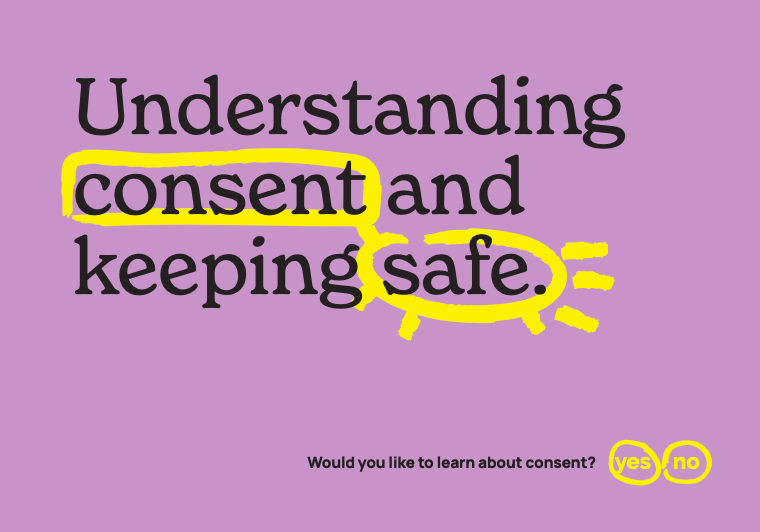Sex is something you decide.
Being in a relationship does not mean you have to have sex. Whatever you do, whether it's kissing, touching, oral sex or sexual intercourse, it should always be something that you both want to do. Being able to make your own decision about having sex is important.
Sex is meant to be:
- something you decide to do when you are ready
- something that makes you both feel good
- something you can slow down, interrupt or stop at any time
- safe because you are both prepared to protect yourselves from sexually transmitted infections (STIs) and
unintended pregnancy
- a positive experience, not something to feel bad or guilty about
You decide:
- when to start having sex
- if you want to have sex
- if you want to have sex every time
- what kind of sex you want to have
- who you want to have sex with
What if I decide I don't want to have sex?
Not having sex is OK! You always have the right to decide if you want to have sex or not. It is your decision. There are other ways to be close, like kissing, cuddling, talking and holding each other. Sexual activity is about choice, intimacy and feeling good.
If you don't feel OK or safe, then it's probably not the right time for you to have sex.
Remember: no one has the right to pressure you into it. Even if you've had sex once, it doesn't mean you have to again. Some people might start off being sexual and then change their mind. This is OK too.
Forcing someone to have sex or take part in any type of sexual activity that they don’t want to, is a crime called rape or sexual assault.
A sexual act may be considered sexual violence if:
- you have not agreed or consented to it
- you agreed only because of intimidation or coercion
- you were unable to agree because you were asleep, intoxicated or for any other reason, unable to consent
- an adult has sexual contact with a child.
For 24 hour National Sexual Assault Helpline, call 1800 RESPECT on 1800 737 732.
Understanding Consent and Keeping Safe
Consent is freely choosing to engage in a particular activity.
Sexual consent is freely choosing to engage in any sexual activity for pleasure like kissing, touching, or having sex.
While these statements may sound simple, we know that consent is much more complex than this.
Understanding Consent and Keeping Safe guides young people through the head, heart and body framework to set their own boundaries and recognise those of other people.
Communicating about consent and what each person wants or likes can increase enjoyment and pleasure in sexual relationships. Encouraging effective communication can support development of healthy relationships.
This resource can be
• Used as a guide for professionals working with young people.
• Used by young people in conjunction with education around sexual relationships and consent education.
• Provided as a resource for young people that are approaching the age of consent and older.
To download this free resource, click here.
